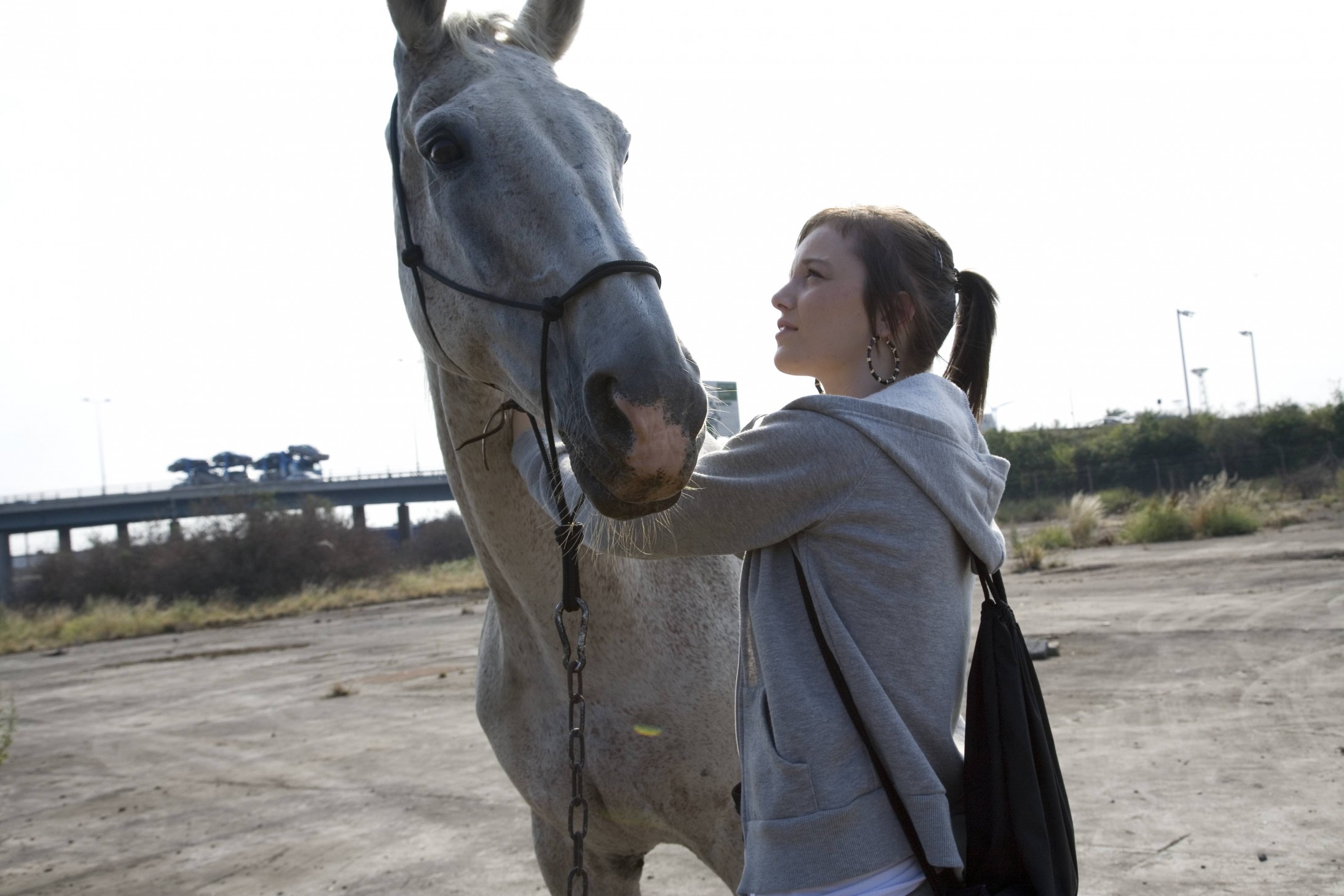By Irene Enlow
Written and directed by Andrea Arnold, Fish Tank (2009) thrusts its audience into a world of feral feminine physicality. In doing so, the film offers an unflinching, tactile meditation on the claustrophobia of aimless adolescent ambition. Mia Williams (Katie Jarvis) is fifteen years old, seldom still, and almost always breathless. Drawn to dance, she spends much of the film finding choreography inspiration in shadowy internet cafes and mirroring what she sees with clumsy, unfocused earnestness. When she’s not preparing for a dance audition, Mia is still possessed by a frantic sense of restlessness. Aware of the performative nature of maturation, she tries on various absurdly archetypal roles for size—seductress, animal advocate, kidnapper— as she attempts to define what adulthood means to her. A contemporary Tom Sawyer, she skips school only to fumble her way over fences and into fights and friendships. At home, she sips on her mother’s alcohol while her little sister drowns in eye shadow and swears like a sailor. The two of them tussle with an intensity that threatens to shatter the neon-pink walls of their public housing. Later, Mia finds herself in a tangled relationship with her mother’s lover, Conor O'Reily (Michael Fassbender).

Fish Tank is a gritty bildungsroman that, like every difficult teenager, challenges the validity of socially established divides between childhood, adolescence, and adulthood even as it simultaneously affirms their necessity. But, if Mia is immature and self-absorbed, the adults around her are downright solipsistic, viewing her more as a pest or pet than a vibrant young adult in need of guidance. As she auditions for adulthood, much of the grown-up choreography that Mia sees and later approximates is inelegant at best, and disingenuous at worst.
Mia butts heads with her mother, but she still finds a welcome sense of catharsis in mirroring her dance moves. Similarly, in an unusually slow-paced scene, she shuffles her way through knee-deep water with the step-by-step guidance of Conor. With her help, he catches a fish in his hands. We watch it stir and shiver in the sunlight for far too long before Mia declares that she wants to eat it. The fish ends up in the jowls of the family dog and Mia is left with a bloody foot.
For much of the film, Mia is caught between childhood and adulthood. She is tragically denied a middle ground by her circumstances. Like a fish who is secure for a breathless second in warm, bare hands before being discarded a moment later, she is cradled like an infant by Conor in one scene and sexually exploited by the older man in another. Both approaches to her are wrong, but possible as Mia hovers uncomfortably between adolescence and adulthood, water and air. In its exploration of the liminality of adolescence, Fish Tank also admirably captures an authentically uncategorizable brand of femininity. Mia is scrappy. She is not afraid to scrabble in the dirt and scrounge for bricks in dusty lots. At the same time, she experiments with make-up and flirts with her sense of sensuality, even as she rarely washes her feet or nurtures her younger sister. Mia is not only in the process of defining herself as an adult, she is defining herself as a woman.
Unfulfilled and emotionally undernourished, the only time that Mia can stop floundering and catch her breath is when she is designing her own choreography. When the film quiets its hyper pace once more, she moves languidly but intentionally with the rushing breeze to her own personal dance. Mia’s life is full of missteps, but by the end of Fish Tank, she is a little more sure-footed than she was at the start and at least now her missteps are authentically her own.
Stir-crazy and thrashing her way towards the end of adolescence, Mia seeks intentionality and the invincibility that comes with it. Unsure of what she wants, but sure she wants it, Mia’s fitful spontaneity is equally exhausting for her and the audience. At the same time, the ineffectual trial and error that we witness as she screams and slams and sashays her way into adulthood is viscerally memorable, and at least a little relatable. Mia’s performance isn’t polished, but it has promise and lots of personality.
